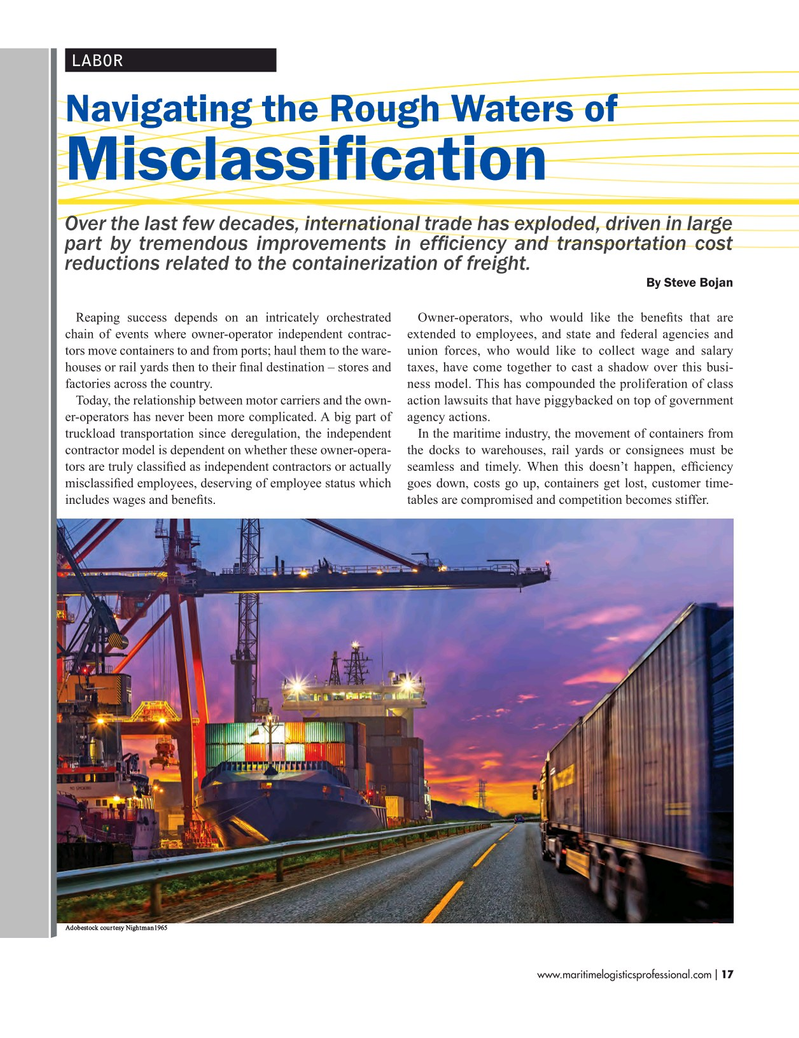
Page 17: of Maritime Logistics Professional Magazine (May/Jun 2017)
BUNKER OPERATIONS & PORTS
Read this page in Pdf, Flash or Html5 edition of May/Jun 2017 Maritime Logistics Professional Magazine
LABOR
Navigating the Rough Waters of
Misclassifcation
Over the last few decades, international trade has exploded, driven in large part by tremendous improvements in effciency and transportation cost reductions related to the containerization of freight.
By Steve Bojan
Reaping success depends on an intricately orchestrated Owner-operators, who would like the benefts that are chain of events where owner-operator independent contrac- extended to employees, and state and federal agencies and tors move containers to and from ports; haul them to the ware- union forces, who would like to collect wage and salary houses or rail yards then to their fnal destination – stores and taxes, have come together to cast a shadow over this busi- factories across the country. ness model. This has compounded the proliferation of class
Today, the relationship between motor carriers and the own- action lawsuits that have piggybacked on top of government er-operators has never been more complicated. A big part of agency actions.
truckload transportation since deregulation, the independent In the maritime industry, the movement of containers from contractor model is dependent on whether these owner-opera- the docks to warehouses, rail yards or consignees must be tors are truly classifed as independent contractors or actually seamless and timely. When this doesn’t happen, effciency misclassifed employees, deserving of employee status which goes down, costs go up, containers get lost, customer time- includes wages and benefts. tables are compromised and competition becomes stiffer.
Adobestock courtesy Nightman1965 www.maritimelogisticsprofessional.com 17
I

 16
16

 18
18
